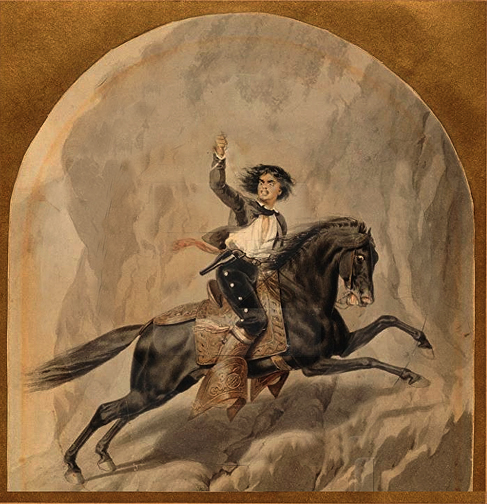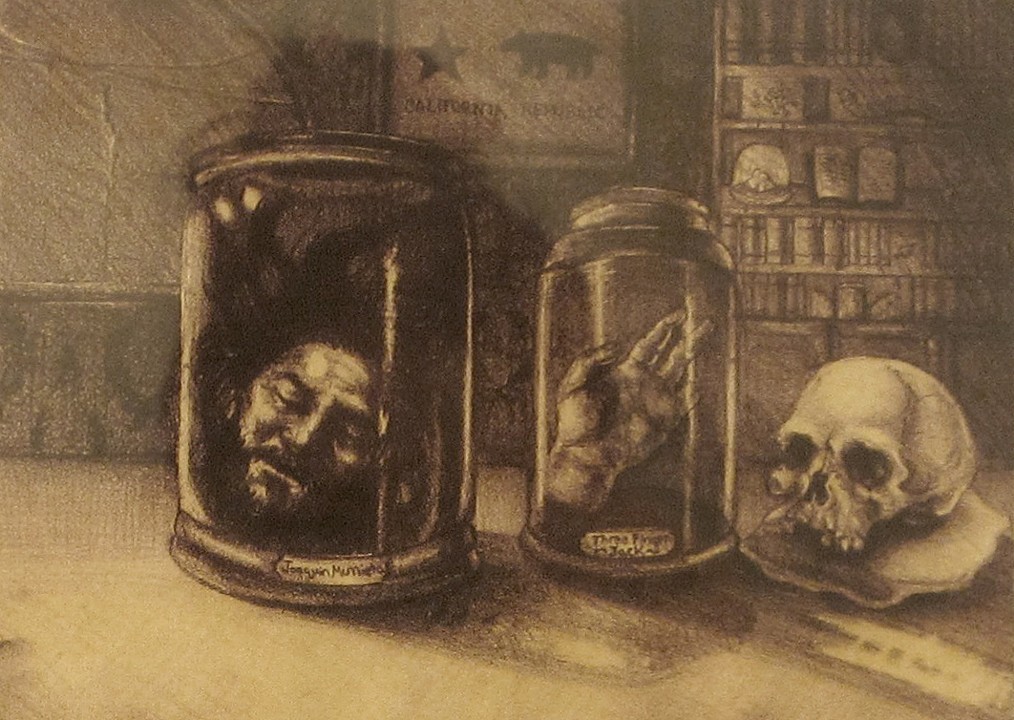Figures come and figures go and only the very best have a habit of sticking around in the popular memory. Many of our most treasured fictional characters have very real origins, taking inspiration from people in the real world. While you might not realize it, these people were even more impressive than their fictional counterparts, taking on everyday dangers that posed a very real threat to their lives. Such was the case with Joaquin Murrieta. Finding a sort of fame in 19th century America, Murrieta was seen as something of a Hispanic hero, going on to inspire the dashing figure of Zorro.

While his very early life still remains a mystery, Murrieta is known to have made the journey from either Mexico or Chile to California in 1850 in order to seek out his fortune. Packing up with his younger brother, Murrieta headed to the center of the gold rush, setting up his own farm in the hopes of stumbling across a treasure trove of riches later in his life. The early days were already prosperous for Murrieta, bringing him into a successful industry, on the path to realize a great success in the coming years.
Things did not stay quite so rosy for long, however, and not long after Murrieta had made the move to the United States, a foreign miner’s tax was put into effect, making it much harder for non-citizens to claim their wealth. The local community only made it harder for Murrieta and his brother, threatening them to leave land which they did not feel rightly belonged to them. While the brothers tried to ignore the hostile attention they were getting, it soon became all but impossible for them to overlook what was going on around them.
One afternoon proved to be the catalyst for a major change in Murrieta’s life. Deciding to take matters into their own hands, a group of American locals attacked the peaceful farm, hanging Murrieta’s brother and raping his wife before his eyes. While Murrieta survived the ordeal, his complaints fell on deaf ears with the local government, who told him that he didn’t have a leg to stand on when seeking legal action.

As a result of this injustice, Murrieta decided that it was time to take matters into his own hands. Going outside of the law, he went on the found a group of five vigilantes who called themselves the “Five Joaquins”. While the gang eventually took down six of the men responsible for the crimes, Murrieta was not satisfied with their actions and soon enough, he widened his search for further adventure.
Journeying further into the Wild West, the gang began looking for trouble, murdering anyone and destroying anything that would stand in their way. Despite their overt actions, the gang managed to slip past the clutches of the law for a period of seven years, enacting their own sort of justice during this time. After having acted outside the law for so long, however, the gang soon came under government investigation and eventually, a bounty of $5,000 was placed on the head of Murrieta.

The rangers soon caught up with Murrieta’s gang, killing all of the members in a gun shoot out. To prove their job was done and dusted, the rangers cut off Murrieta’s head, preserving it in a jar of whiskey. Despite Murrieta’s reputation, he was celebrated by many on his death. Giving back to his Mexican compatriots, Murrieta earned himself something of a following in his life, with entire communities looking up to him. The figure continued to remain throughout folklore history, inspiring a number of tales and characters that cropped up over the years.